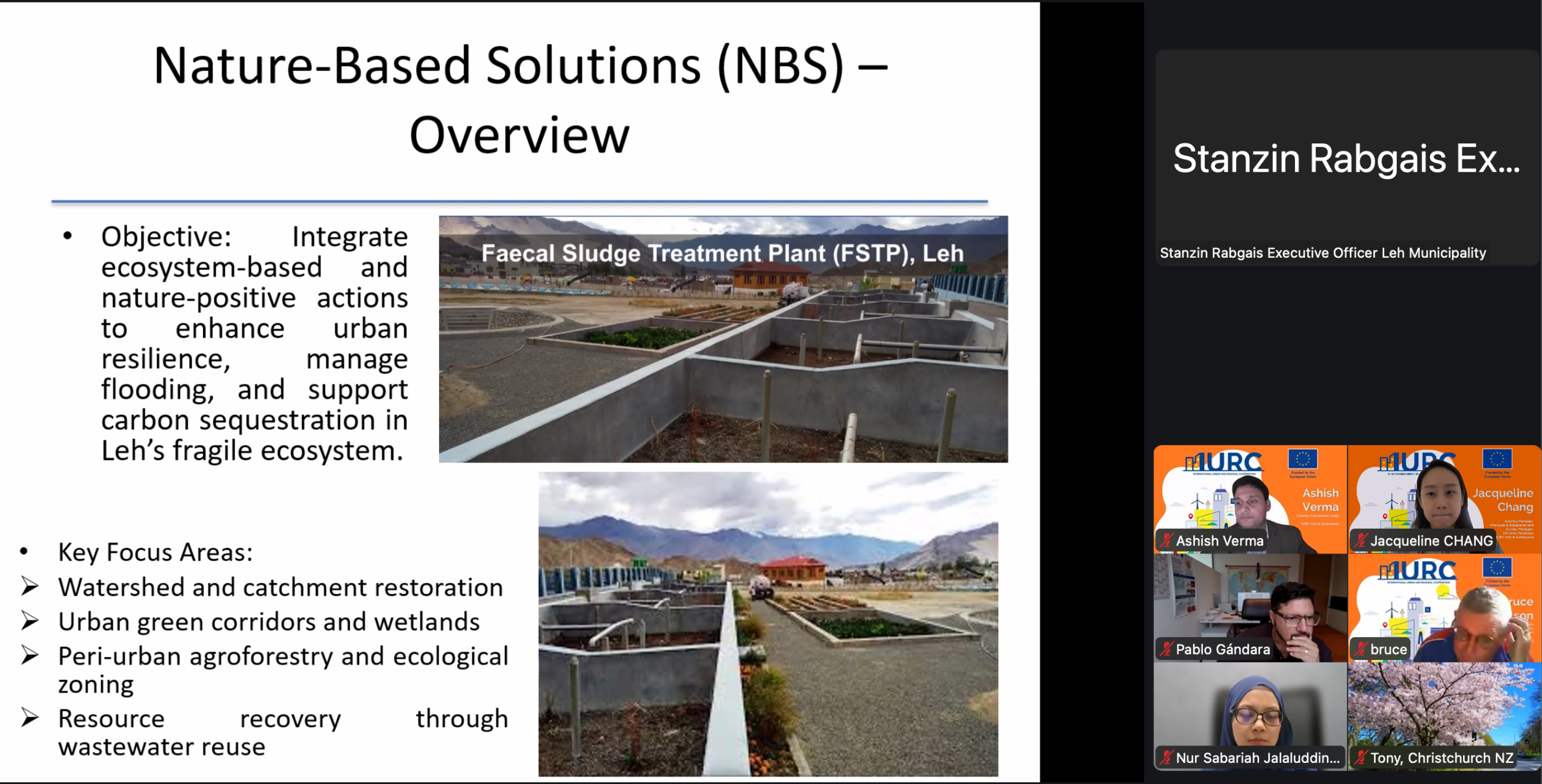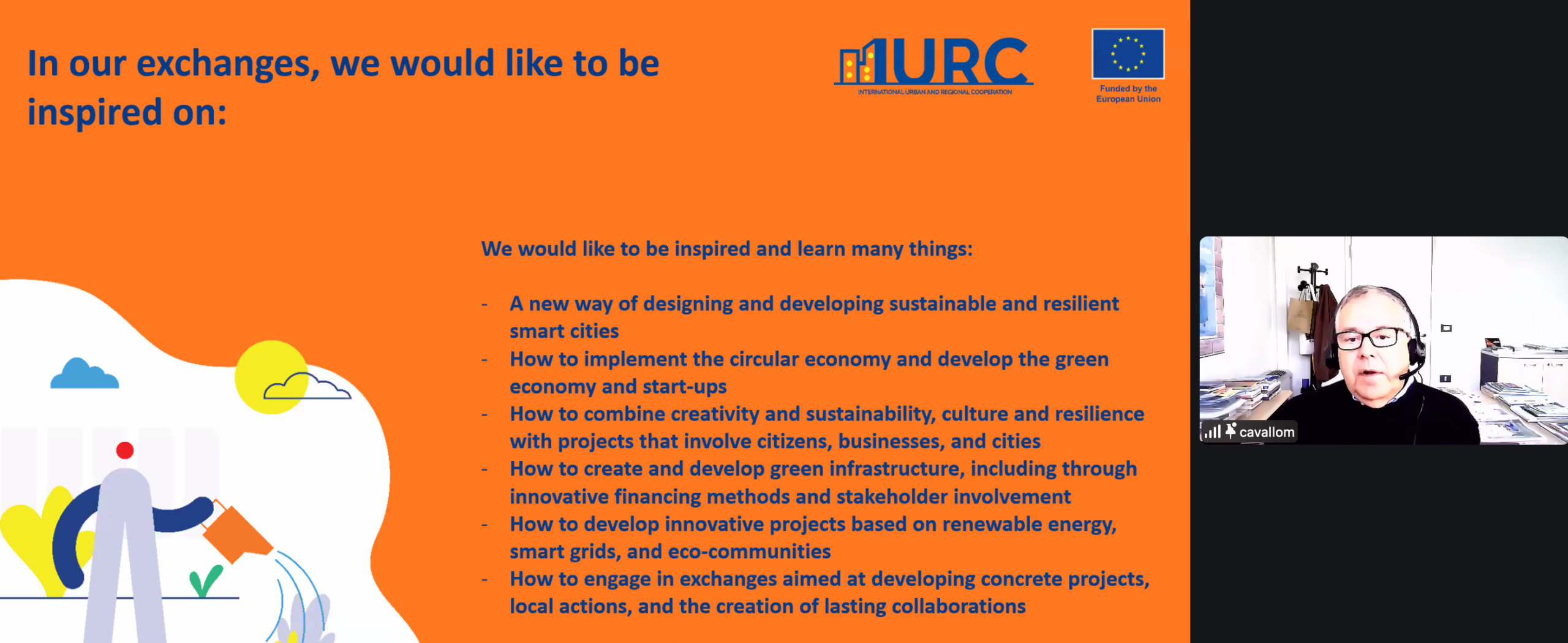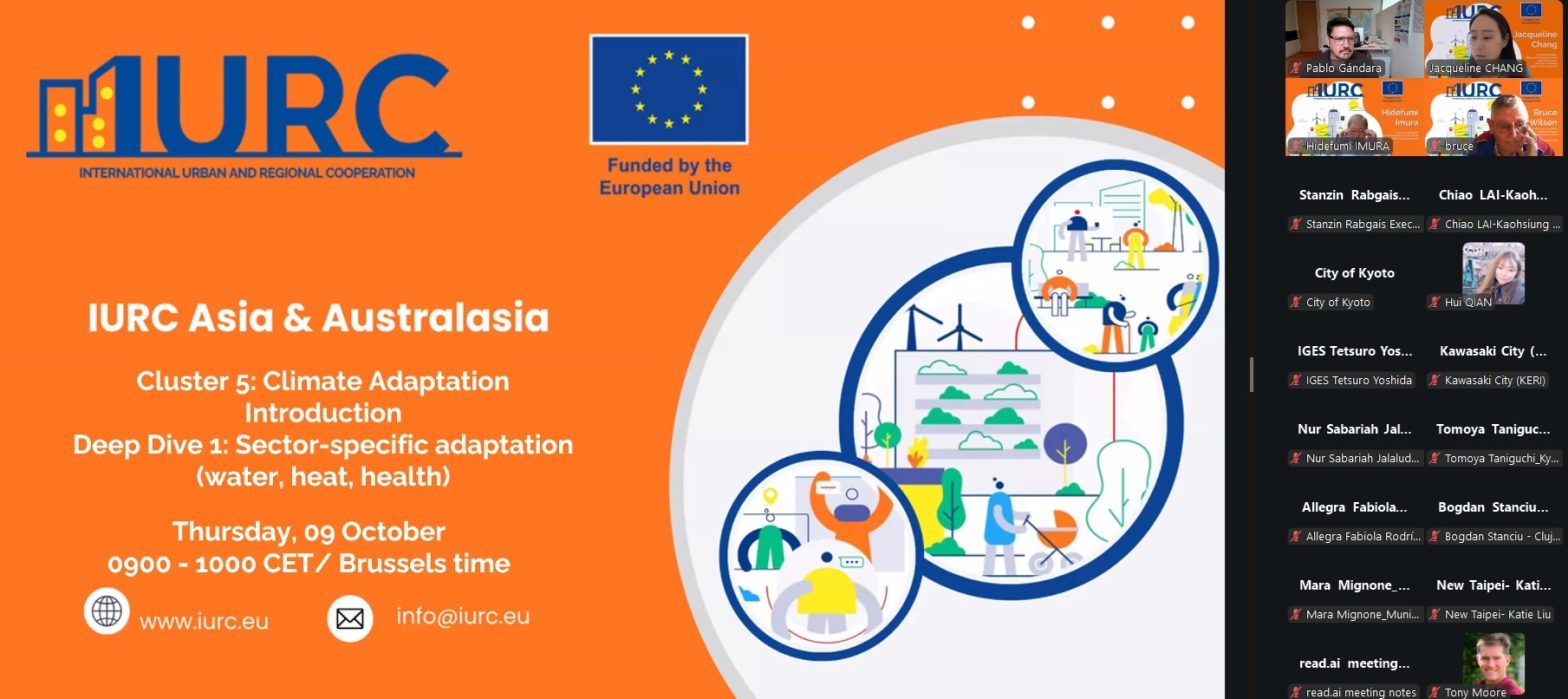9 October 2025 – Online Deep Dive Session
The International Urban and Regional Cooperation (IURC) Asia & Australasia Thematic Network hosted its first Global Deep Dive Session on Climate Adaptation, connecting experts and city leaders from India, Malaysia, and Italy to share experiences and practical solutions for strengthening urban resilience. The event marked another milestone in advancing city-to-city cooperation on climate action within the IURC framework.
Adapting to Climate Challenges through Partnership
Moderated by Mr. Ashish Verma, Country Coordinator and Cluster Manager for Climate Adaptation at IURC Asia & Australasia, the session underscored the urgency for cities to move from planning to implementation. “Adaptation is not one solution but a mix of nature-based, technological, and social approaches,” he noted, emphasizing that deep-dive exchanges are essential for cities facing shared risks such as flooding, heat stress, and water scarcity.
Mr. Verma encouraged participants to explore the IURC Knowledge Library and thematic clusters as resources for scaling good practices and partnerships, highlighting the EU’s support in building international cooperation for sustainable, climate-resilient cities.
Leh (India): Integrating Traditional Wisdom and Modern Resilience
Mr. Stanzin Rabgais, Executive Officer of the Leh Municipal Committee, presented the city’s approach to climate resilience in the fragile Himalayan ecosystem. Facing challenges of glacial melt, limited water resources, and extreme temperature variation, Leh is integrating energy-efficient construction, sustainable tourism, and improved waste management systems.
Mr. Rabgais highlighted that adaptation in Leh depends on blending traditional Ladakhi building knowledge—such as passive solar design and local materials—with contemporary planning and environmental monitoring. “In our mountains, resilience starts with respect for nature and community cooperation,” he said.

Iskandar Malaysia: Nature-Based Solutions for Flood-Resilient Cities
Ms. Nur Sabariah Jalaluddin, Vice President for Sustainability & Community at the Iskandar Regional Development Authority (IRDA), shared Iskandar Malaysia’s Sungai Segget River Regeneration Project—a flagship example of nature-based adaptation. Once an area plagued by flooding and pollution, the riverfront now serves as a green corridor integrating flood mitigation, sewage treatment, and inclusive public spaces.

She announced that IRDA is now launching a USD 5 million Water Sensitive Urban Design (WSUD) project along the Skudai River, focused on restoring river ecosystems and improving flood resilience through natural design. “If you want to go fast, go alone; if you want to go far, go together,” she remarked, underscoring the collaborative spirit behind Iskandar’s progress.
Ms. Jacqueline Chang, IURC Cluster Manager, added that the Iskandar project’s partnership with the World Bank’s City Climate Finance Gap Fund provides a replicable model for other IURC cities seeking climate investment.
Bologna (Italy): Innovation and Green Corridors
From Europe, Mr. Marino Cavallo of the Metropolitan City of Bologna and NCI Nuovo Circondario Imoleseshowcased Bologna’s comprehensive climate strategy. Through projects like the TALEA Project and Urban Innovation Parks, Bologna is creating green corridors that mitigate heat islands, promote biodiversity, and connect urban and rural ecosystems.
Mr. Cavallo described Bologna’s partnerships with local universities and SMEs to develop data-driven adaptation tools. The city also leads the Greening Cities Network under the EU Urban Agenda and recently secured an URBACT “Sponge Mesuris” grant to advance flood mitigation through community-based, nature-inspired design. “Climate innovation is not just technology—it’s about trust, cooperation, and long-term vision,” he noted.

Reflections and Way Forward
In the interactive discussion that followed, participants explored shared barriers to financing adaptation and integrating resilience into policy frameworks. Mr. Pablo Gándara, IURC Team Leader, reflected on how collaboration between Bologna and Iskandar Malaysia during the first phase of IURC laid the groundwork for these deep dives, proving that strong partnerships evolve over time.
He emphasized that upcoming IURC activities, including regional clusters and the Smart City Expo World Congress 2025 in Barcelona, will showcase new cooperation pathways and pilot projects inspired by exchanges like this one.
Closing the session, Mr. Verma thanked the participating cities for their openness and insight. “From the Himalayas to the Mediterranean, cities are redefining resilience together,” he said. “This deep dive reminds us that innovation grows stronger when knowledge flows across borders.”
